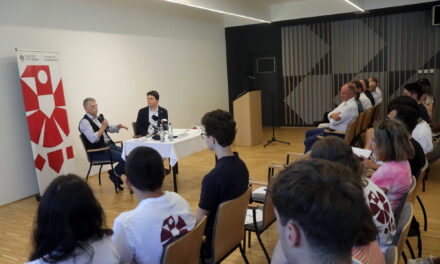Chemical castration is still legal in 38 countries around the world, including ten states in the United States. At last week's torchlight parade in Bicske, it became clear that there would also be a need for it against the perpetrators of pedophile crimes.
But what does chemical castration mean, how does Mi Hazánk envisage the domestic regulations, and has there been a government resolution on the matter yet?
In recent weeks, the decision of the President of the Republic to grant an executive pardon to Endré K., who was legally sentenced to 3 years and 4 months in prison for coercion, and who blackmailed several residents of the children's home in Bicske against the director János V., who sexually molested them, caused a huge storm in recent weeks and led to resignations to retract their testimony. The former director of the institute was legally sentenced to eight years in prison for pedophile crimes.
With torches in front of the children's home in Bicske
After the pardon case erupted, on February 13, the Mi Hazánk Movement held a torchlight parade at the children's home in Bicske. At the demonstration, President László Toroczkai promised that if his party gets into government, pedophile criminals will be castrated.

Photo: Zsófi Szollár / Index
Castration is not a new idea, as Dóra Dúró - then still in the colors of Jobbik - already in 2016 and 2019 (and her former party colleague Ádám Mirkóczki already in 2010) proposed the forced medical treatment of pedophiles, or more precisely: the possibility of chemical castration.
At the torchlight parade in Bicske, Dóra Dúró again brought up castration, who also objected that the director convicted in the case could "get away with eight years".
He screams that systemic change is needed in criminal law and law enforcement. Pedophiles must be castrated, Mi Hazánk is initiating a law amendment to this end
- said the opposition politician, who - as he explained at a press conference in 2016 - would like the amendment of the Penal Code to create the possibility of chemical castration for perpetrators of sexual crimes against children. According to their proposal, those convicted for such crimes for the first time could submit to the procedure voluntarily, while repeat offenders would be required to do so. He added: the recidivism rate for such crimes is very high.
Chemical castration is a colloquial term used in several countries to refer to the treatment of sex offenders with antiandrogen drugs. Antiandrogen drugs are substances that block the effect of androgen (stimulating or regulating the development and maintenance of male characteristics) hormones. The first direct effect of chemical castration is erectile dysfunction, i.e. the inability to develop or maintain an erection, to which the reduced testosterone level is a contributing physiological factor. Although the term chemical castration is often used by lay people, it is more professional to call this procedure "hormonal medication" or "drug treatment to reduce sexual desire". The first chemical castration was used for the first time in 1944.
It is incompatible with the Basic Law
as a criminal sanction in 38 countries of the world - with different rules, conditions and practices . This is how the legal conditions are given in, among others, Australia, South Korea, Estonia, Poland, Moldova, Pakistan, South Korea, ten states of the United States, and in addition, in Russia, Argentina and Israel, there is also the possibility to release the child in exchange for voluntary castration. part of a prison sentence.
In other words, the chemical castration of pedophiles would be an accepted solution in many countries of the world, but only on paper.
In practice, judgments are rarely made that include this solution. Years ago, a Moldovan court sentenced a fifty-year-old man who raped his partner's eight-year-old daughter to chemical castration.
By the way, a government resolution on chemical castration was also adopted in Hungary. Eleven years ago, the Ministry of Public Administration and Justice announced to Népszava that mandatory castration is not compatible with international human rights conventions and many points of the Basic Law, so the government does not plan to introduce it.
Such penalty clauses would violate provisions prohibiting torture, inhuman or degrading treatment or punishment
- claimed the Ministry of Justice, according to which chemical castration "can have serious health consequences", moreover, in such a way that nothing guarantees the effectiveness of the intervention.
Featured image: MTI/Szilárd Koszticsák













